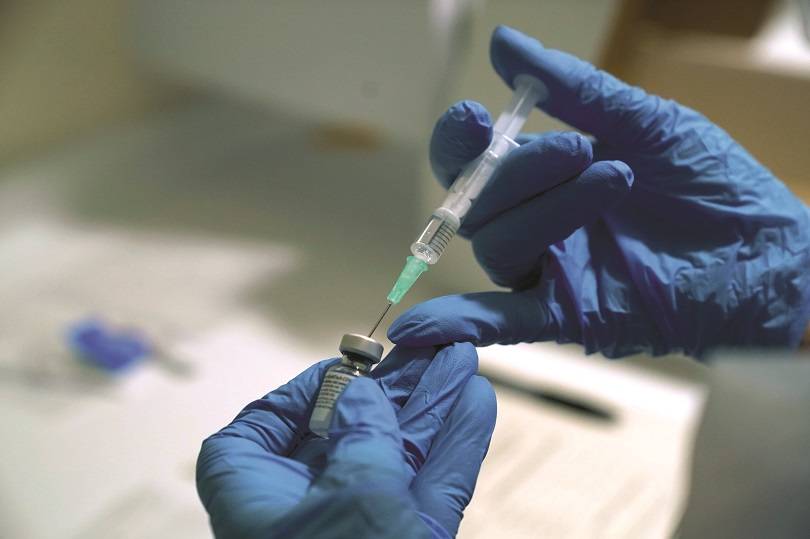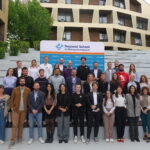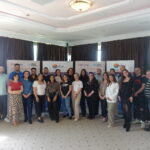“We must understand that the whole of 2021 will be the year of vaccination,” said Dragoslav Popovic, an international consultant for immunization at UNICEF and the World Bankon Radio Television of Serbia. True, but just as we cannot wait for this, strange and unfortunate 2020 to end, we also cannot wait – our way of life, our societies, our economies –for the vaccine to come.
We will not deal with opponents or “anti-vaxxers” here. All vaccines that are in one of the phases of clinical testing are being tried around the world, precisely in order to take into account the differences and specifics that exist between us. Secondly, there seems to be no need to vaccinate children. Third, one by one, businesses will insist on mandatory vaccination as a precondition for providing the service. Some airlines (see the statements of the director of the Australian “Qantas”) are already announcing this as a condition for you to travel with them. Fourth, the very fact that we have a vaccine that is safe and “works” only a year after the outbreak is an incredible achievement of modern science and technology. And we have not one, but several of them; “Astra-Zeneca” and “Moderna” vaccine do not even have to be stored at ultra-low temperatures. This sounds so incredible, that the discussion about a possible drug against COVID-19 has fallen into the background. (It will take years before it is produced; some therapies, loudly advertised, have proved ineffective.)
Producing a vaccine in a pandemic is a matter of global prestige. No two ways about it. A country that aspires to the status of a serious, respectable world power will not distribute a vaccine that has not been tested. Try to imagine the consequences of deteriorating health in thousands, or perhaps even millions, of people who have received theirshot. A systemic crisis of a number of governments, riots would follow, and the already fragile trust in international relations would be irreversibly damaged. Who will trust Russia or China tomorrow if their vaccine is not successful? On the other hand, if the product of a given country brings relief, the benefits are manifold: its science, industry, and ability to organize will be complete in the eyes of others. And if the power in question shows generosity, and opens its warehouses (refrigerators) for the poor as well as for the rich, prestige will turn into “soft power” of the highest order. Because, let’s be realistic: “Pfizer” (because of the way it is stored), “Astra-Zeneca” and “Moderna” vaccine will first reach the developed West and North. Here are the chances for “Sputnik V” and “Sinovac”. With strategic infrastructure projects, China is already neck deep in Africa; it all happened while the West was “asleep”. Success in such an ultimate health policy test would strengthen the country’s position even more.
Take “Sinovac” as an example. It is a successful company; was the first to register a vaccine against SARS, back in 2003; and then swine flu, 2009. Its vaccine against COVID-19 (“coronavac”) will be tested in a number of important countries – regionalpowers – Brazil, Pakistan, Indonesia, Turkey. It will then represent hope for a number of underdeveloped, poor countries of the global South. Each of these has its place in China’s global plans, including Serbia, which joined the testing program last month. However, according to the “Washington Post”, the director of “Sinovac” admitted that he bribed officials in order to speed up the process of approval for use. The verdicts and court records that “the Post” had access to show that from 2008 to 2016, twenty officials in five Chinese provinces admitted to accepting bribes. All in all, this casts a “long shadow” on the company’s business – although it is true that there were no health consequences for people who received its earlier vaccines. In the meantime, the data received today (December 8) from Indonesia indicate that the “coronavac” also achieved over 90% success (97%, for phases 1 and 2; not 3, to be precise). The data from “phase 3” will first arrive from Brazil, around December 15, and will represent perhaps the most important confirmation of the safety of the “Chinese” vaccine.

The administration of the vaccine will be a test for the organization of the state of the highest order. The first on it will be Great Britain, which started immunization ofits population today (December 8). The plan is ambitious and requires exceptional concentration of all links in the chain. The population is divided into categories, according to the degree of exposure and risk (there are nine). As elsewhere, the vaccine will be given first to health workers – anesthesiologistsand nurses, and then the oldest and patients with chronical illnesses. Seventy hospitals are ready to administer the first doses by the end of this week (December 13); 800,000 people should be vaccinated in the coming weeks (BBC), with Catholic Easter (April 4, 2021) as the date by which most citizens over the age of 50 and with chronic health problems (25 million of them) will receive the first dose (Boris Johnson in an address to the media last week). It is believed that this will cover between 90 and 99% of people at risk of dying from the effects of COVID-19. The locations where the vaccine will be administered will eventually be over a thousand, from special “hubs” in selected hospitals, to stadiums and conference centers. As many as 30,000 volunteers will be involved. Those under 16 will not be vaccinated.
By immunization, immunity is achieved in the following way: on the 12th day after the first vaccine, it starts to “build up”; the second dose is given on the 21st day after the first vaccine; and person reaches full immunity a week later, on the 28th day from the beginning of the process.
The fact that the first vaccines will be administered in Great Britain inevitably brought about a political dimension. Alluding to Victory Day, Matt Hancock, the Minister of Health, called this the “V-day”. Brexiting UK no longer depends on the approval of the European Medicines Agency, and there are those who envy her. The European Union (EU) has acted more cautiously, moving the decision on the “Pfizer” vaccine for December 29 (and “Moderna” vaccine for January 12). Its bodies did it guided by the interests of the members and their citizens, but also because they could not go faster – all27 members had to agree beforehand.
This impatience must be understood: relatively spared in the “first”, Central Europe was severely hitby the “second wave” of COVID this fall. That is why Viktor Orban asked Russia for doses of the “Sputnik V” vaccine even earlier in order to determine its effectiveness; and now discussions are led with China on his behalf. The example of Hungary will be followed by others who are trying to pursue a “sovereign” foreign policy (it seems that this word will be established in our discourse in the coming days), among them Serbia.
As critical as the health situation may be, in Brussels this will be understood as another challenge to the EU foreign policy. On the other hand, Germany and others will simply have to wait, as evidenced in the statement of the Minister of Health Jens Span, that they will start with immunization in the first week of January. However, the ability of the EU to negotiate as a single bloc of 500 million people has enabled it to secure 2 billion doses – whichwill not only solve the problem of its citizens (there is EU citizenship, it must be constantly reminded) but also tomorrow in a situation to provide the same to someone who does not have access to the vaccine. Thus, we return to the topic of “soft power” and international prestige.
Also, regardless of the ambitious plan of Great Britain, the vaccination of the wider population will only start in the first quarter of 2021. Allegedly, the first problems in production have appeared, and instead of the planned 10, “Pfizer” will deliver only 5 million doses by the end of the year to the UK (BBC). At the same time, the logistics that precede the administration of the vaccine are very complex: it is stored in special containers, at a temperature of -70 degrees; and “packages” of 975 doses that cannot be divided into smaller ones, which is why vaccination in retirement homes is not possible in the first phase (also BBC, December 8). Finally, while the vaccine prevents you from getting sick, it is still unclear how it will affect the ability of the virus to “catch” and transmit to others.
So, the “return to normal” will last, and various measures will remain in force during the winter and right until spring. So “(wear a) mask, (wash your) hands, (keep) distance” as the slogan adopted in Bosnia and Croatia reads. When it comes to Serbia, a nice way to end 2020 or start ’21 would be to have key politicians publicly (as some of them have already announced) receive the first doses of the vaccine. When everything is rightly re-examined – the actualnumber of deaths, the capacity of the health system, the justification and efficiency of the adopted measures – weneed a little trust (in science? Institutions?) In order to be open again for each other.
First published in Novi magazin weekly no. 502, 10 December 2020













